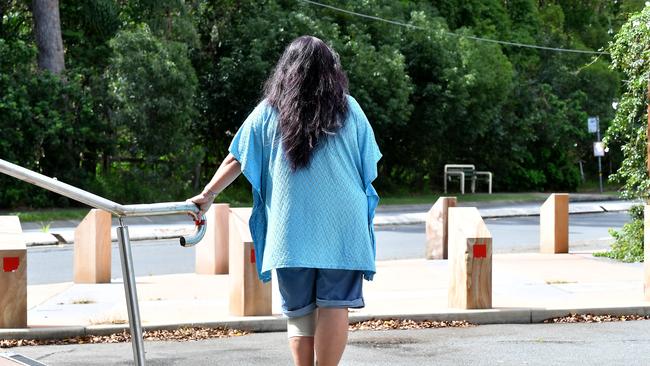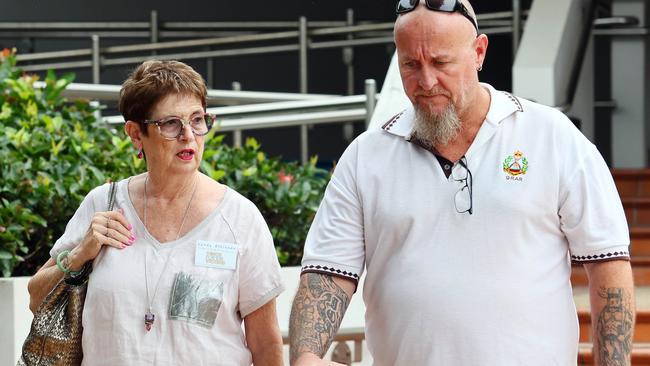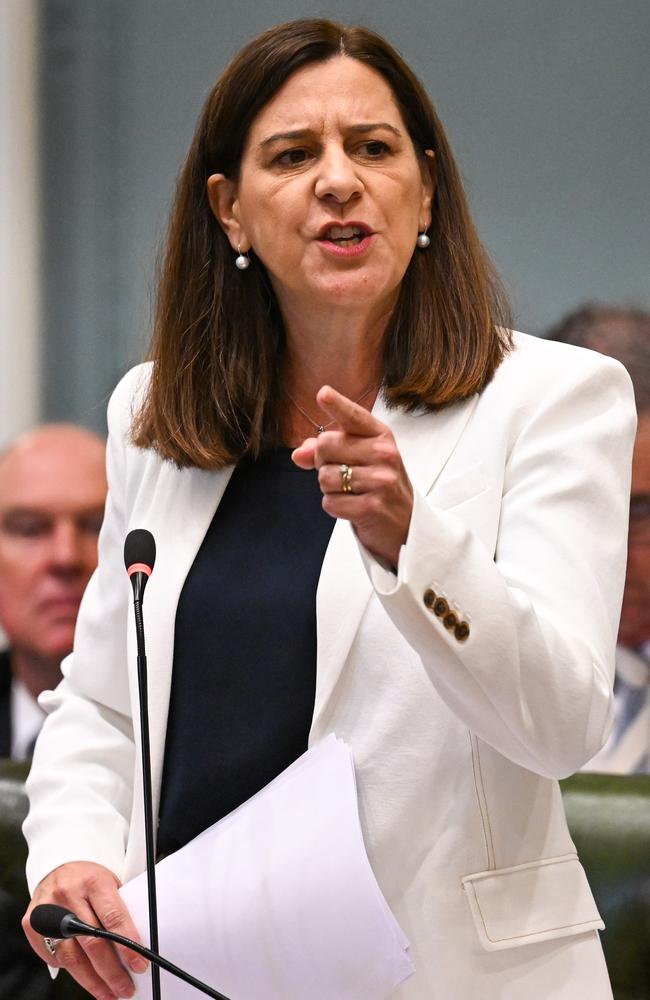Wait time for Qld court cases to be finalised has doubled over decade
The average wait times for court cases to be finalised in Queensland has doubled in the past decade, with some distraught victims desperate for closure not even told when a matter has been dealt with.
QLD News
Don't miss out on the headlines from QLD News. Followed categories will be added to My News.
The average wait times for a matter to be finalised in a Queensland Court has doubled in the past decade, with distraught victims desperate for closure also lashing out over the lack of communication when it comes to cases.
Data released by the Australian Bureau of Statistics showed the average wait time for a court case to be finalised in all Queensland courts had increased from 11 weeks in 2013-14 to 20.9 weeks in 2023-24.
The longest wait times were in the higher courts with the average 53.4 weeks during the last financial year.
Multiple advocacy groups told The Sunday Mail victims were often unaware when the next court date for their case was unless they pushed to be involved.
One mother – who is unable to be named for legal reasons – told The Sunday Mail that after her son was attacked, the court date she was given was moved without her knowledge.

This meant the woman was not given the opportunity to read her victim impact statement, which said felt like she did not get closure.
“I think it was about two days before the actual sentencing date that we were given, I received a phone call about lunchtime saying that a child had been sentenced already because the judge had decided he had a bit of time and decided to do him instead, and we didn’t get a chance to do anything,” she said.
“I wanted closure, but I was also mad, because I wanted to see this child and to see what he was going to say about it.”
WWILD Sexual Violence Prevention Assn. Inc director Gillian O’Brien said victims were often anxious about getting information and left wondering about when the next court appearance would be.
“We’re hearing from them frequently, asking “what’s happening? I don’t know anything. I haven’t heard anything. I don’t know where things are up to?
“We’re trying to be that link with police to try and find out some more information and provide that reassurance around that this does take a really long time.
“Trying to seek that information for them when they’re not receiving it directly about where things are up to.
Ms O’Brien said some detectives were good at keeping people informed of where their case was up to.

“(But) Much more often they will only get in touch if the person is required to attend court as a witness, so there can be a huge wait time (months at least) between arrest and when the matter is handed up to District Court,” she said.
In 2023, Army veteran Chris Sanders, was attacked at an Alexandra Hills shopping centre and was left in a pool of his own blood with a knife wound 1.5cm to his heart.
In March, the now 18-year-old was sentenced to a three-month conditional release order as he has already served 189 days on remand in juvenile detention for this and other crimes.
Attorney-General Deb Frecklington has since lodged an appeal against his sentence. And the 18-year-old boy is before the courts again after fresh break-in charges.
Mr Sanders said the drawn out court process meant he still did not have closure.
“I’m the one that still lives this every single day, the pain, every single day, the nightmares, every single day,” he said.
“I don’t understand he’s been charged, the facts are there. Why can’t they turn around and act on it straight away.”
Voice for Victims advocate Lyndy Atkinson said she was chasing court appearance dates for victims daily.
“They just feel that they’re just 100 per cent left out of the picture, whereas they feel that offenders know everything, every step of the way, especially if they’re in custody,” she said.
“They know everything. They know when they’re going to court. They know what to expect. They’ve got legal representation. They’re told what to say.
“The victims know nothing. They are left behind and that has to change, it just has to be flipped over.”
PACT chief executive officer Chris McCarthy said there were often challenges dealing with government agencies because of the bureaucratic nature of the system.
“I know it’s frustrating for some of the victims or clients that we support. Organisations like ours who play a really important role, I think, in, greasing the wheel to a certain extent to help minimise the impact of the legal system on victims as they go through it,” he said.

“So that when they do get to their day in court, if they do get to their day in court, they can actually give their best evidence in order to make sure that the best case is presented, for justice within its definition to be served.”
The Victims Advocate Service is being developed and is anticipated to be up and running in 2026.
The service will consider how best to support victims throughout the justice process and connect them to existing support services meaning victims will no longer have to navigate the system on their own.
A spokesperson for the Attorney-General Deb Frecklington said the government was committed to upholding the rights of victims of crime.
“Access to justice in Queensland is being accelerated by the introduction of tougher laws for juvenile offenders, the increase of judicial resources, with extra judges appointed to the courts, as well as an increase of funding to the Office of the Director of Public Prosecutions,” she said.
The government has allocated an additional $142 million for community legal centres as part of a broader $1 billion investment in the legal assistance sector.
A QPS spokesman said they were committed to keeping the community safe.
“The QPS continually works closely with all levels of Government as required, and partner agencies to share intelligence and improvements to protect victims and hold perpetrators accountable,” he said.
Originally published as Wait time for Qld court cases to be finalised has doubled over decade



